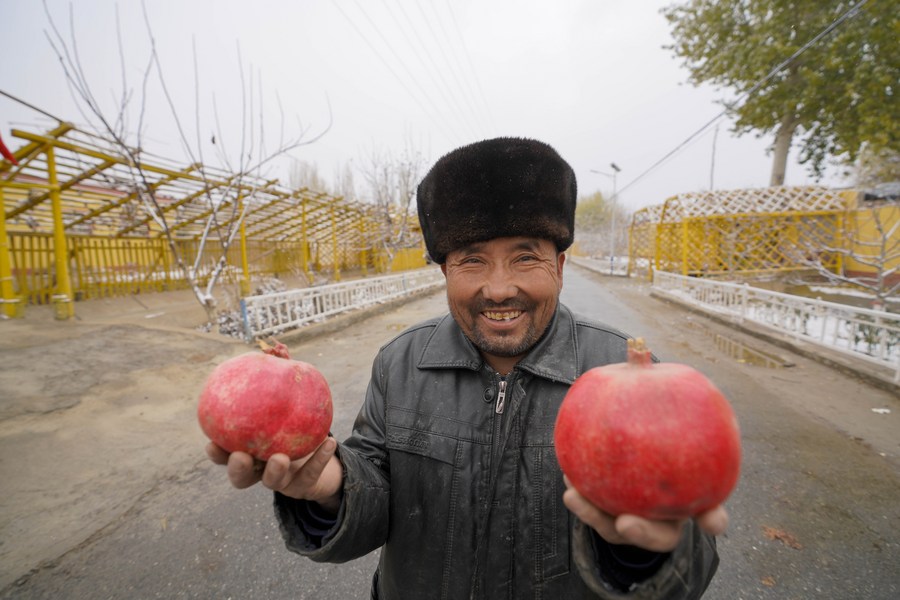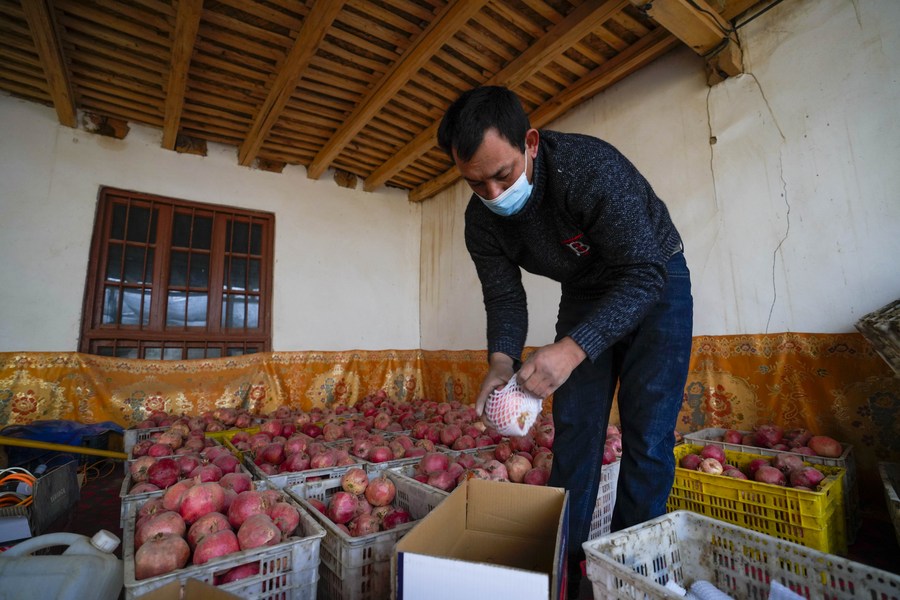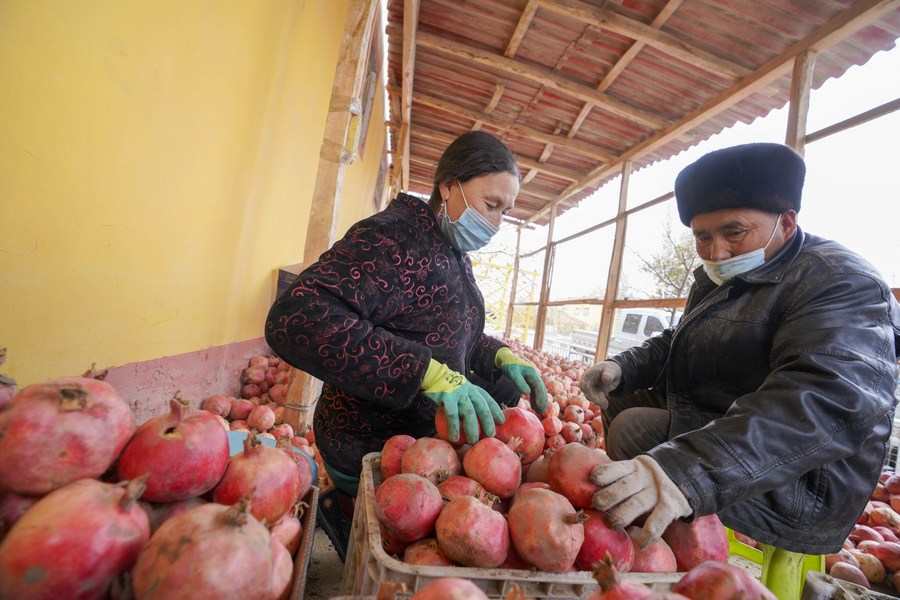
A villager shows Piyaman pomegranates in Kumboyi Village, Piyalma Township, Pishan County in northwest China's Xinjiang Uygur Autonomous Region, Nov. 21, 2020. (Xinhua/Zhao Ge)
URUMQI, Jan. 15 (Xinhua) -- Most people who have tasted a Piyaman pomegranate from Xinjiang Uygur Autonomous Region, northwest China, might comment on its sweetness. To achieve the fruit's sweetness, local farmers changed every single rule that they had stuck to for generations.
Located under the Kunlun Mountains, Piyalma Township in Pishan County is famous for its agate-like red Piyaman pomegranates. Here, the first rule -- the more fruit, the better -- was once infallible among the pomegranate growers.
"We used to think more fruit meant more money," said Memtimin Mahsut, Party secretary of Kumboyi Village, "Now it's different. In flower season, farmers thin the blossom clusters."
Agrotechnicians told the farmers this would allow the most nutritious flowers to bloom, resulting in sweeter, bigger fruits that could fetch a higher price.
"The trees are all the same, but they yield more profit now," said Memtimin.
Quality instead of quantity: this new rule has turned pomegranate trees into cash cows. Despite the COVID-19 epidemic, the per capita income in Kumboyi hit 16,920 yuan (2,616 U.S. dollars) in 2020, around 800 yuan higher than the year before.

A villager sorts Piyaman pomegranates in Kumboyi Village, Piyalma Township, Pishan County in northwest China's Xinjiang Uygur Autonomous Region, Nov. 21, 2020. (Xinhua/Zhao Ge)
Harvest is not the end of the process, how to sell them also matters to the farmers of Pishan. Tursun Kauz had his own plan. It was nearing late winter and the traditional sales season had passed, but he still had hundreds of kilograms of pomegranates.
"These are all the best fruits I harvested this year. I won't sell them until the lunar New Year. The price will be much higher then," said Tursun.
In the past, farmers rushed to sell all their fruit before the sales season ended to reap the financial returns as soon as possible. Oversupply brought down the price, and they would sell for as little as 20 yuan per kilogram.
"A friend from Shanghai told me that good products are worth waiting for," said Tursun, "we need to find out the best time to sell our best pomegranates."
With better storage conditions, Tursun decided to sell his fruits over the New Year and Lunar New Year holidays, when the price would increase to 30 yuan per kilograms.

Villagers sort Piyaman pomegranates in Kumboyi Village, Piyalma Township, Pishan County in northwest China's Xinjiang Uygur Autonomous Region, Nov. 21, 2020. (Xinhua/Zhao Ge)
While Piyalma farmers are busy growing and selling, township officials are working out new rules to better protect the brand of Piyaman pomegranates -- One way out, no way in.
"As our pomegranates are becoming more popular, some fruit dealers buy pomegranates sourced from other areas and sell them as authentic Piyaman pomegranates. They are ruining our brand reputation," said Aygul Ehmet, an official in Kumboyi Village.
To ensure the authenticity of the fruits, the township has restricted delivery. Only locally-grown pomegranates, each one tagged with a unique QR-code, are allowed to be shipped out of Piyalma; no outside pomegranates are allowed in.
In 2019, a total of 15,000 tonnes of Piyaman pomegranates from Kumboyi were sold, bringing the village 18 million yuan (2.78 million U.S. dollars).







